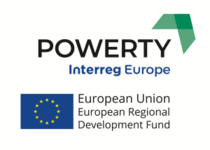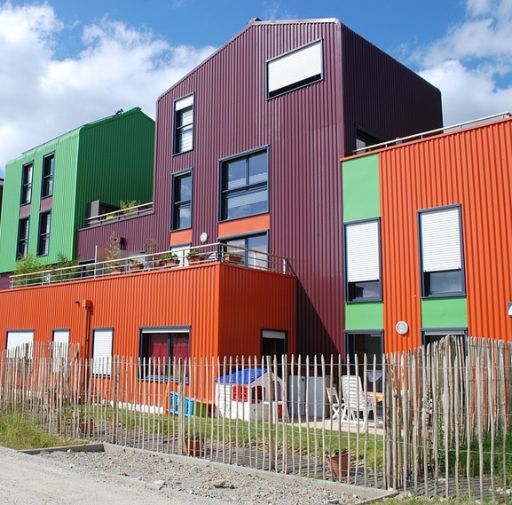
A part of the European population does not have access to renewable energy due to socioeconomic constraints, in particular the groups affected by energy poverty. However, the transition to a low-carbon economy will only be possible if all categories of the population can access renewable energies. Developing the use of renewable energies among vulnerable populations is the main objective of the POWERTY project.

A pilot action carried out in Auvergne-Rhône-Alpes
An inventory of the initiatives carried out in France and in Europe to allow vulnerable households to have access to renewable energy has been conducted. Based on this, AURA-EE, two citizen energy communities (Centrales villageoises des Portes du Vercors and Toits en transition) and two local associations for energy transition (Soliha Drôme and ALEC de Lyon) have imagined a model to enable vulnerable households to equip their homes with renewable energy thanks to citizen investment.
The idea which has been tested is the implementation of an Energy Performance Contract (EPC) between citizen companies and vulnerable households. Two pilot areas have been selected to test this model: a rural (Portes du Vercors) and an urban one (Lyon Metropolis).
Read the article published on Feb. 14
Some news on the action plan Development of renewable energies in vulnerable households in Auvergne-Rhône-Alpes: geothermal and solar projects under study. Read more
The model tested was the following:
- The energy community invests in the equipment (wood boiler, individual solar water heater, stove...) for a modest household,
- The energy produced directly benefits the household,
- The household pays back the investment through a rent calculated on the basis of energy savings until the investment is refund (5 to 10 years in most cases)..
In the end, the household benefits from free renewable energy equipment and is protected from price volatility.
Results of the experimentation and follow-up
The phase of the project that carried the experimentation ended mid-2022. On 7th of July 2022, AURA-EE presented the results of the study during a conference in Lyon and online to one hundred participants interested in the subject. The report, replay and presentations made during this conference are available here.
From September 2022, the project enters a new one-year phase (August 2022 - August 2023), during which AURA-EE's mission is to monitor the actions implemented on the regional territory. Territorial actions could usefully be set up between energy communities and local authorities to deploy renewable energy equipment to low-income or vulnerable households. The current period of high energy prices and the call for sobriety in gas and electricity seems to be a good opportunity to deploy these innovative solutions involving the inhabitants as actors of the energy transition of their territory and leaving nobody "on the side" of the road.
POWERTY, an Interreg Europe project for technological and social innovation
POWERTY aims to enable the use of renewable energies for the most vulnerable and fuel poor populations through the development of technologies, tools and methods, financing mechanisms, solutions to regulatory barriers and social innovation strategies.
To this end, the project has focused on:
- Identify the renewable energy technologies, tools and methods best suited to vulnerable populations by addressing, for example, the issue of district heating and cooling installations, as well as self-consumption. Priority was given to residential housing, but also to social buildings (schools, social centers, food distribution, etc.).
- Identify appropriate funding mechanisms (public and private) for the target audience.
- Overcoming regulatory barriers to renewable energy development for vulnerable households.
- Define social innovation strategies and provide communities with tools to boost citizen participation at local level.
Launched in August 2019 and funded by the European Interreg Europe programme, POWERTY brings together a consortium of 7 partners:
- The Andalusian Energy Agency (AEA) and the Regional Government of Andalusia (Spain)
- Plovdiv Energy Agency (EAP) (Bulgaria)
- The Auvergne-Rhône-Alpes Énergie Environnement Regional Agency (AURA-EE) (France)
- Lithuanian State Investment Promotion Agency (VIPA) (Lithuania)
- The Opole Metropolitan Area Trust (AOT) (Poland)
- The University of Manchester (UK)
Update: July 2022


Imprimer